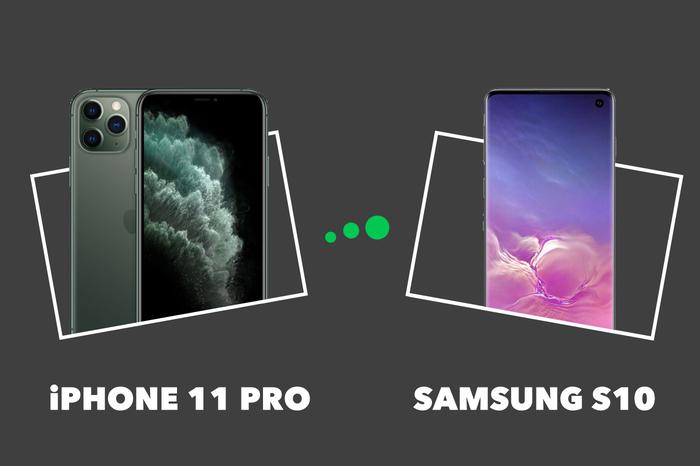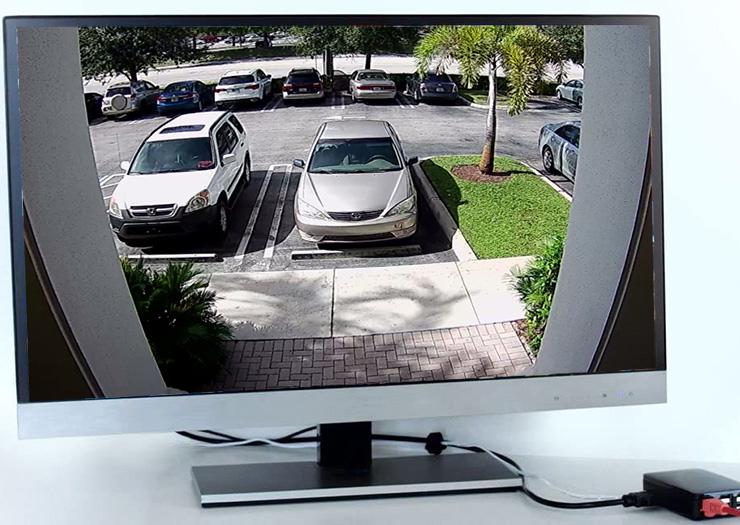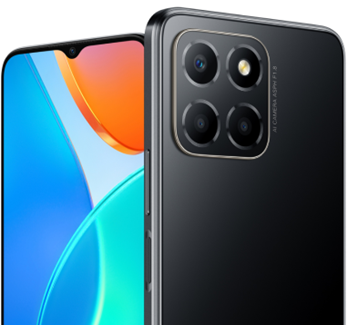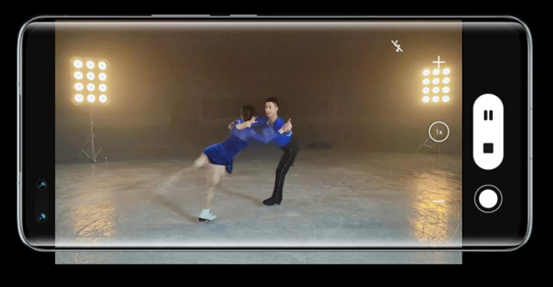iPhone 11 Pro vs Samsung Galaxy S10: which phone is right for you?
(Image credit: Future)Apple unveiled the iPhone 11 Pro in September 2019 (alongside the iPhone 11 and iPhone 11 Pro Max), and the phone is a beauty - though, new cameras aside,...
28/12/2021
(Image credit: Future)
Apple unveiled the
iPhone 11 Pro
in September 2019 (alongside the
< p>iPhone 11and
iPhone 11 Pro Max
), and the phone is a beauty - although aside from the new cameras, not much has changed on the exterior since the release of the
iPhone X
in 2017.
But it's undeniably the best iPhone yet - so how does it compare to the< /p>
Samsung Galaxy S10
? Yes, the latter was overtaken by the
Samsung Galaxy S20
, but it's still a very powerful flagship with a place on our
best android phones< /p>
roster and good competition for Apple's best.
The iPhone 11 Pro and Samsung Galaxy S10 are incremental upgrades over their predecessors, though that's still one of them.
< p> best phonesavailable. In terms of features and price, these are definitely two of the best flagship phones of 2019. And as one has been replaced and the other will soon suffer the same fate, their prices will only continue to drop, only 'add to available value.
But what sets them apart? We've broken down a comparison into key categories to see how these top devices compare. Wondering which one has the best display? Curious which one has the best camera suite? We have what you need.
Today's best Apple iPhone 11 Pro and Samsung Galaxy S10 deals
Packages
Unlocked
Get $50 on this phone when you buy it on a 12 month plan from Mint Mobile
Galaxy S10 128 GB
Samsung Galaxy S10
Mint Mobile US
< p>Without contractUnlimited
mins
Unlimited
SMS
15GB
data
Calls:
Calls to MX & CA included
Texts:
Messages to MX & CA included
Data:
(speeds slowed down to 128kbit/s)
$649
in advance
$25 p>
/month
See the offer
to
Mint-Mobile
See all prices
We check over 250 million products every day for the best prices.

Samsung Galaxy S10
(Image credit: Future)
Design iPhone 11 Pro vs Samsung Galaxy S10
Design-wise, both phones are very similar to their predecessors. The Samsung Galaxy S10's curved "Infinity Edge" display and camera layout are one style, while the iPhone 11 Pro is a rectangle with rounded edges. The Samsung boasts a 6.1-inch screen, while the iPhone 11 fits a 5.8-inch panel, both are so similar in size on this faceplate that each is a good choice when a one-handed operation is taken into account.
The iPhone adopts the "unibrow" notch containing various Face ID infrared sensors for contactless unlocking, while the Galaxy S10 has a punch-hole camera and no such secure features are built in - although face unlock option is available.
At the rear, the situation becomes a little different. While both manufacturers are clearly inspired by a particular mix of functional and utilitarian industrial design, the camera clusters offer a little differentiation. The Galaxy 10 adopts a continuous line for all its sensors to inhabit, while the iPhone opts for something a little more reminiscent of a cooker. Both are iconic in their own way, but any decision between the two is sure to come down to personal preference.
iPhone 11 Pro
(Image credit: Techradar)
< p> iPhone 11 Pro screen vs Samsung Galaxy S10The iPhone 11 Pro's 5.8-inch OLED display is sharper than ever, and it even has a new marketing-approved name, "Super Retina XDR." Unfortunately, those early rumors were correct: Apple has kept the notch, which seems bigger than ever in a year when phone makers have struggled to give users more and more screen.
As for the Samsung Galaxy S10, the front-facing camera has been reduced to a single punch-hole at the top right of the display, while the rear fingerprint node has been eliminated at the advantage of a sensor integrated into the screen.
It's more attractive than a notch, and the best compromise that side of workarounds like pop-up cameras or exposure lenses by sliding down the front screen.
Overall, it's an OLED vs. OLED battle, and while the resolution numbers differ, they basically look great. The Samsung Galaxy S10's 1,440 x 3,040 pixels are larger than the iPhone 11 Pro's 1,125 x 2,436 pixels - which makes sense, given the former has a larger screen than the latter.
It's a fools game to tell the difference between the two, they are both some of the best panels available at any price. Both offer excellent color reproduction, high brightness and contrast and are great for almost any use case.
Samsung Galaxy S10
(Image credit: Future)
Camera iPhone 11 Pro vs Samsung Galaxy S10
Adding more lenses to the mix is a new trend for smartphones that shouldn't go away. No device arrives today without at least one “Quad-AI camera” sticker.
The Galaxy S10 and iPhone 11 Pro arrive with a trio of cameras. Each has a similarly sized 12MP main sensor, although only the Samsung sports a variable aperture, with both telephoto and wide-angle sensors.
The performance of both is at a flagship level, at all zoom levels the difference between the two will largely be subjective to a preference in photo style. Apple tends towards more natural colors and warmer hues, while Samsung amps up the sharpness and contrast in its images, each with a different taste preference.
Both have night modes, although in testing we were a bit more consistent in its capabilities, although the Samsung proved to be no slouch.
With such a variety of lenses on offer, there's no situation either camera won't be able to cope with.
Video capture on both is good and detailed, and will be more than adequate for most use cases.
(Image credit: Techradar)
iPhone 11 Pro vs Samsung Galaxy S10 performance
The iPhone 11 Pro packs the new A13 chipset, making it the fastest iPhone yet. At its September 19 launch event, Apple said it was the fastest chip ever in a smartphone. As in every device since the iPhone X, expect this chip to take the new handset's AR and AI capabilities to new heights.
In general use it's proven to be one of the most subtle handsets we've ever had. handy - although there's nothing in the App Store that could confuse a modern handset. Expect performance overhead to be used by Apple in the coming years to help absorb the success of OS upgrades, the iPhone 11 Pro will receive them for a few years. Samsung will offer a shorter software release support window for the Galaxy S10.
The iPhone 11 Pro also comes with another mystery chip - the U1. Its Ultra Wideband technology allows the handset to find other devices containing the same chip. This was interpreted as a reference to Apple's beacon tracking tiles, which weren't mentioned at the September event - but in any case, it's additional technology that allows devices running on the cohesive iOS ecosystem to play even more pleasantly with each other. A use case for this has yet to be launched.
The Samsung Galaxy S10 packs either the Snapdragon 855 chip in the US or the Exynos 9820 in the rest of the world - both powerful processors and the best of you can fit in an Android phone apart from the new and expensive Snapdragon 865. Despite the relative age of this older chipset, it still packs enough punch to deliver flawless performance.
Since neither of these devices are 5G-capable, they mostly go neck-and-neck for media processing and streaming over mundane networks. In a showdown, we'll end up seeing Apple's new chip outpace the Snapdragon 855 (the A12 chip was more powerful than the 855 in some tests), but that doesn't matter: both are capable and fast enough to play games and watch TV shows.
Samsung Galaxy S10
(Image credit: Future)
iPhone 11 Pro vs. Samsung Galaxy S10 Battery
Apple hasn't announced the specific battery capacity of the iPhone 11 Pro, but it never does. A previous estimate put the iPhone XS battery at 2,658mAh, and rumors were pricing the new handset at 15% larger (or more).
And with the improvements to the display tech in the 11 Pro and the new, more efficient chipset, we found the handset has more than enough juice to last through most days, if not the following.
Officially, Apple says the iPhone 11 Pro gets four more. hours of battery life than the iPhone XS, which is a big jump.
The handset also replaces its tired 5W charger with an 18W outlet in the box, which Apple says will boost the new phone's volume by 50% in 30 minutes. The wall adapter part uses USB-C while the new iPhone works with Lightning. The extra load capacity makes quick reloads in difficult situations all the easier and is much appreciated.
The Galaxy S10 does not exceed the battery life of the iPhone 11 Pro, even if it has a slightly larger battery. His faster loader, however, proves to be enough of an advantage to push him through. That said, the S10 does have a utility edge: it can charge other devices wirelessly thanks to its Wireless PowerShare feature (elsewhere called Reverse Wireless Charging). This is useful for recharging the Galaxy Buds, or for gifting a friend a refill when needed.
(Image credit: TechRadar)
Take away
< p> The iPhone 11 Pro is the most refined Apple phone to date, just as the Galaxy S10 is one of the best versions of Samsung's lineup. Suffice to say, neither made big strides over their predecessors, but they're the best choices available for each series if you don't want to go 'Plus' or 'Max'.It's hard to pick a favorite between the two - and not just because we've had so little time with the iPhone 11 Pro. The differences to come with
iOS 13
and
Android 10
have split these phones even more than meets the eye after pitting their specs against each other.
But it's also clear that both phones have become strong cameras, with a similar spread of prime, telephoto and now ultra-wide lenses. If you want a handset to last for years, well then either one will suit you - clearly neither phone is introducing much-needed features to leapfrog the competition anytime soon.
Each device is a compelling option in its own right and among the top picks for its respective operating system. But with the usual booming depreciation, the Galaxy S10 offers almost as much phone as the iPhone 11 Pro for a much lower price, and should be a strong consideration for most.
iPhone 11 vs. iPhone 11 Pro vs. iPhone 11 Pro Max
See more mobile phone news




